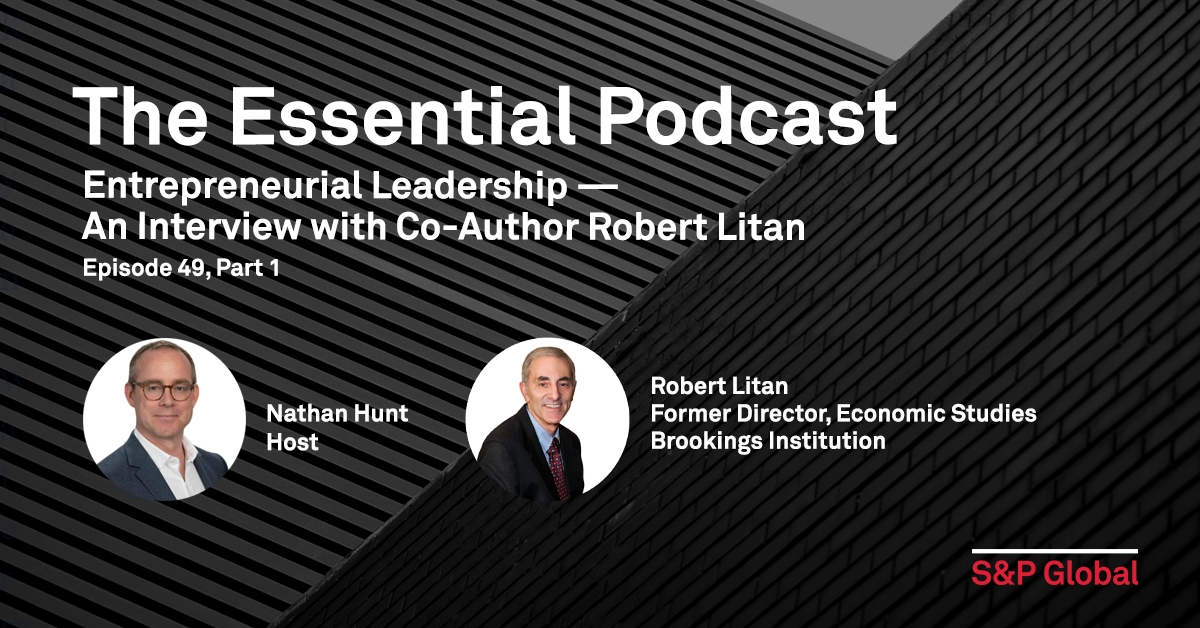Featured Topics
Featured Products
Events
S&P Global Offerings
Featured Topics
Featured Products
Events
S&P Global Offerings
Featured Topics
Featured Products
Events
S&P Global Offerings
Featured Topics
Featured Products
Events
Language
Featured Products
Ratings & Benchmarks
By Topic
Market Insights
About S&P Global
Corporate Responsibility
Culture & Engagement
Featured Products
Ratings & Benchmarks
By Topic
Market Insights
About S&P Global
Corporate Responsibility
Culture & Engagement
Podcast — 26 Oct, 2021

Robert Litan, Former Director of Economic Studies at the Brookings Institution, joins the Essential Podcast for Part 1 of a four-part series to talk about the report "Entrepreneurial Leadership Must Help Meet America's 21st Century Challenges in a Post-Pandemic World" and how his own work and career shaped his approach to the collaboration.
The Essential Podcast from S&P Global is dedicated to sharing essential intelligence with those working in and affected by financial markets. Host Nathan Hunt focuses on those issues of immediate importance to global financial markets—macroeconomic trends, the credit cycle, climate risk, ESG, global trade, and more—in interviews with subject matter experts from around the world.
Listen and subscribe to this podcast on Apple Podcasts, Spotify, Google Podcasts, and Deezer.
The Essential Podcast is edited and produced by Molly Mintz.